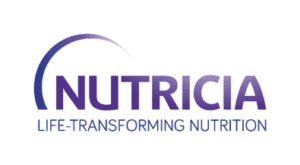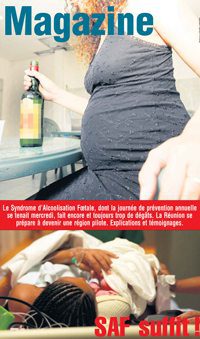An Initiative of the NOFAS Circle of Hope “Stamp out Stigma” Campaign
Kathleen Tavenner Mitchell, 2016
The NOFAS Stamp out Stigma Campaign seeks to reduce the blaming of birth mothers of children with an FASD. One of the initiatives of the campaign is to revise commonly used FASD public health messages to language that is both accurate and less stigmatizing towards women. The stigma associated with drinking during pregnancy has been a barrier to identification and diagnosis of FASD. There are physicians that will not diagnosis an FASD in their patients, even when they are certain that is the correct diagnosis. They do not want to “label” their patients with FASD because they believe it causes harm to the entire family system. The name of the disorder implies that a woman purposely harmed her own child. Many women report that due to stigma, fear of judgment and sometimes prosecution women are often not honest about their alcohol use with their healthcare providers.
The stigma has impeded progress throughout the FASD field. If a plan to reduce the stigma is not prioritized, we may be in the same place as we are today with FASD prevention in another 43 years. In January 2016 the Washington Post featured an article about my life experiences and my family. I am a recovering alcoholic and have an adult child with FAS. The Post reported that it was one of the most widely read articles. By day three nearly 8 million readers had viewed it. The article soon went viral and was featured on websites, newspapers, magazines, radio and television around the world. It trended on Face Book as the #6 topic for the following 2 weeks. Along with all of that media attention came comments from readers. Although the majority of the comments were positive and supportive, approximately 35% were emotion-based reactions that were judgmental, blaming and hateful. The article was very detailed and described how I drank alcohol with my daughter in the early 70’s before FAS had been discovered. Even with those facts clearly described, some of the readers clearly had a need to blame someone. Being a birth mother to a child with FAS is like waving a flag that says “I am a terrible mother, and a horrible human being,” for the rest of your life. Unfortunately, my children are waving their own flags defending me, “my mother did not know; she is a wonderful person.”
Sifting through all of the thousands of comments from people around the world one thing is clear: we need to do more to address the stigma that surrounds FASD. Those comments are informing us that there are a large numbers of people out there that don’t believe that alcoholism is a disease and blame people that become addicted. And people are equally confused about drinking during pregnancy and what FASD is and is not.
In considering just how to tackle the many issues around FASD we started with language. In reviewing the most widely used FASD public health messages, they typically refer to the woman or the mother drinking. It is important that public health messages be created using simple language and easy to understand concepts. The field of FASD has been reluctant to use terminology such as prenatal or fetus in public health messaging, believing that these terms are not well understood by the general public. At NOFAS, in the past decade, we have witnessed a great shift in the language used in questions from the general public. With global access to the internet the general public is more informed and familiar with medical terminology. People do research and are likely to have “googled” their questions before they contact us. The CDC, March of Dimes, and other organization’s websites and materials that address pregnancy issues use words such as prenatal and neonatal. Consequently, NOFAS believes that these terms should be considered as more acceptable for public health messages then they might have been in the past. NOFAS hopes to have all government agencies, researchers, authors, healthcare professionals and advocates agree that we should reframe our messages and do all we can to stop laying the blame of FASD onto birth mothers.
Below are 10 widely used FASD prevention messages that have been revised with language that is less stigmatizing and blaming of mothers. NOFAS revised each message and distributed them to 8 university groups that included pediatricians, social workers, ob-gyns, nurses, medical assistants, and family medicine physicians. With their input and suggestions, NOFAS developed the final recommendations that are highlighted below. They have been forwarded for review to the Centers for Disease Control. Once they receive final clearance the revised FASD prevention messages will be used on all future CDC publications, the CDC website, and by all of the CDC grantees.
NOFAS FINAL : Fetal alcohol spectrum disorders (FASD) is an umbrella term describing the range of effects that can occur in an individual who was exposed to alcohol before birth.
NOFAS FINAL : FASDs can occur in an individual who was exposed to alcohol before birth.
NOFAS FINAL : Prenatal alcohol exposure is associated with an increased risk of miscarriage, stillbirth, prematurity and SIDS, as well as a range of lifelong physical, behavioral, and intellectual disabilities.
NOFAS FINAL : FASDs are completely preventable if a developing baby is not exposed to alcohol before birth.
NOFAS FINAL : No amount of alcohol use is known to be safe for a developing baby before birth.
NOFAS FINAL : Alcohol exposure is unsafe for developing babies at every stage of pregnancy.
NOFAS FINAL : Exposure to alcohol from all types of beverages, including beer and wine, is unsafe for developing babies at every stage of pregnancy.
NOFAS FINAL : A developing baby is exposed to the same concentration of alcohol as the mother during pregnancy.
NOFAS FINAL : Make a plan for a healthy baby – don’t drink any alcohol if you are pregnant or could become pregnant.
NOFAS FINAL : If you become pregnant, stop drinking alcohol. Every day matters. The sooner you stop drinking, the better for your baby. If you need help stopping, talk to your doctor, contact an addiction specialist or contact Alcoholics Anonymous.



